Robert Mueller testimony: Russia will interfere in 2020 election
Robert Mueller warns Congress the Russians will interfere in the 2020 presidential election.
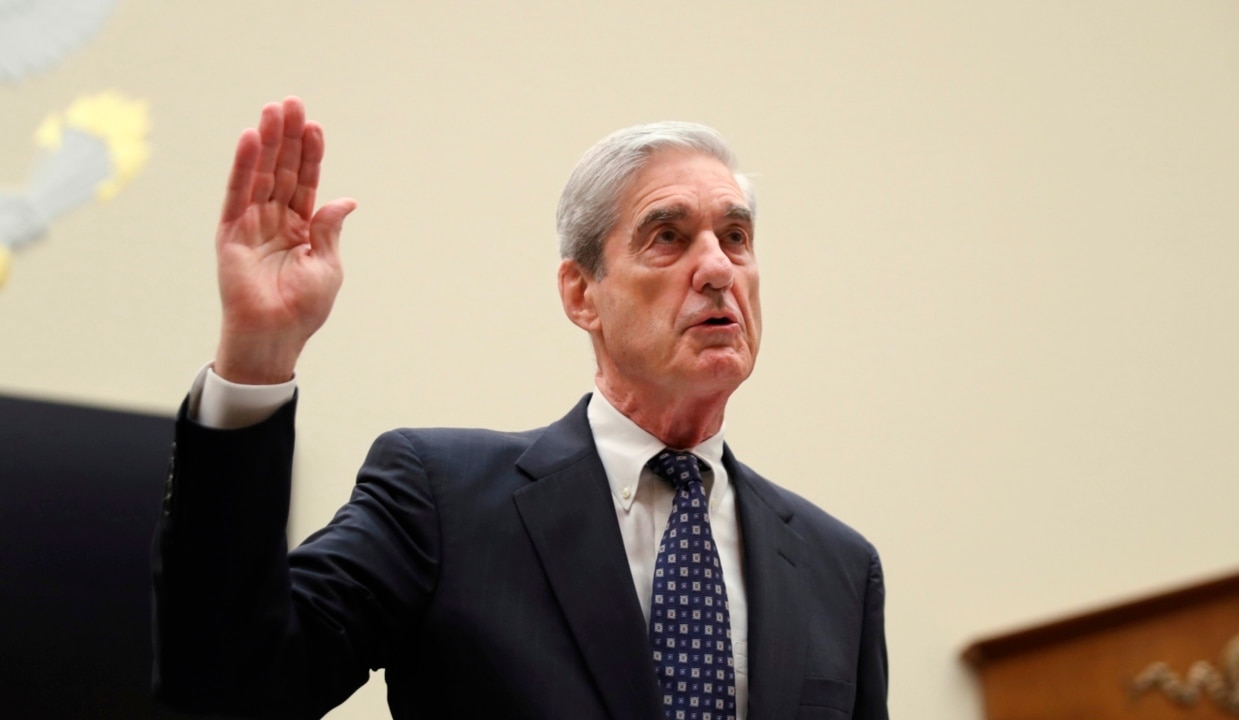
Former special counsel Robert Mueller revealed little new information during a highly anticipated set of hearings before two House committees, repeatedly directing politicians to his report and providing limited responses to Republican attacks on his investigation.
The hearings left Democrats without much of the ammunition they had sought in order to build support for an impeachment inquiry into President Trump, and denied Republicans any admissions of missteps that could help them cast further doubt on the credibility of his team’s work.
Mr Mueller defended his investigation as thorough and fair, restated that it didn’t exonerate President Trump and called Russian election interference one of the gravest threats to US democracy in his first extensive public remarks since he began his nearly two-year inquiry.
“They’re doing it as we sit here, and they expect to do it in the next campaign,” he said. He also said that “many more countries” were developing such capabilities.
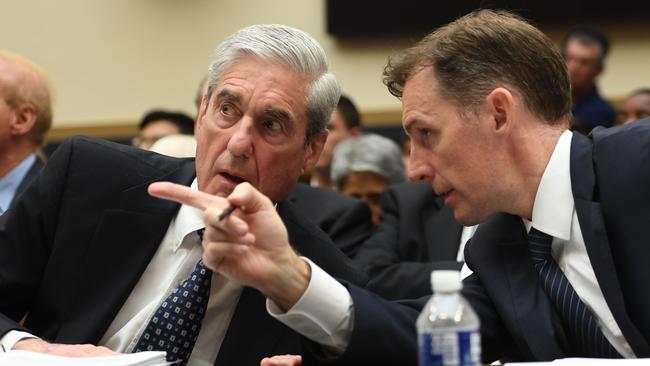
“I don’t think you’ve reviewed a report that is as thorough, as fair, as consistent as the report that we have in front of us,” Mr Mueller said after more than two hours of repeated criticisms from Republicans, which he left largely unanswered. He later also rejected several of Mr Trump’s favourite criticisms of his investigation, saying: “It is not a witch hunt,” and “it was not a hoax.” Mr Mueller also criticised 2016 tweets from Mr Trump praising the website Wikileaks, which published Democrats’ emails that Mr Mueller’s prosecutors alleged were hacked by Russian operatives.
“‘It’s problematic’ is an understatement … in terms of giving some hope or some boost to what is and should be illegal activity,” Mr Mueller said in response to a question from Rep. Mike Quigley (D., Ill.).
At the outset of the hearings before the House Judiciary and Intelligence Committees, Mr Mueller tried to lower expectations, saying he wouldn’t answer any questions about key topics of interest related to his probe, including investigative steps taken early in the inquiry and internal deliberations about the decisions his team reached.
The 74-year-old former FBI director at times struggled to follow politicians’ questions and repeatedly asked for clarification, his voice sometimes cracking. In some ways, though, his demeanour was in line with his reputation as a taciturn former Marine who was known for his reluctance to appear before Congress.
“The kind of questions the White House Correspondents were asking is almost like they didn’t see what went on at the hearings!†@JesseBWatters The hearings were a disaster for Robert Mueller & the Democrats. Nevertheless, the Fake News Media will try to make the best out of it!
— Donald J. Trump (@realDonaldTrump) July 24, 2019
Mr Mueller’s office earlier this year completed a 448-page report on Russian interference in the 2016 election, links between that effort and the Trump campaign, and whether Mr Trump tried to limit the investigation.
The report said Mr Mueller found insufficient evidence the Trump campaign conspired with Russia to interfere in the 2016 election, but drew no conclusion about whether the president obstructed justice, driven largely by longstanding Justice Department policy against indicting a sitting president. In the absence of a recommendation, Attorney General William Barr concluded Mr Trump’s conduct didn’t rise to the level of a crime. Under questioning from Republicans, Mr Mueller acknowledged that his inquiry had never been impeded by the Justice Department.
During the hearing, Mr Mueller stressed that the report spoke for itself.
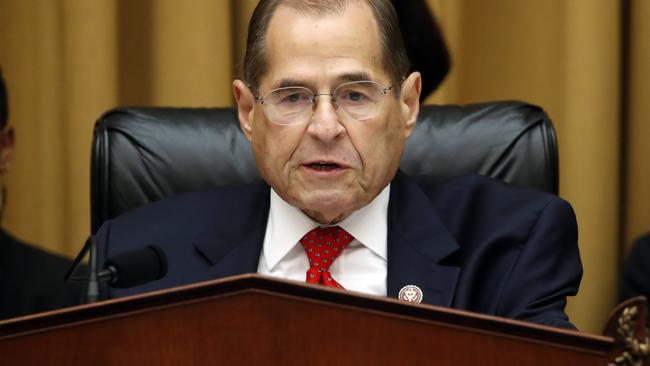
“Over the course of my career, I’ve seen a number of challenges to our democracy. The Russian government’s effort to interfere in our election is among the most serious,” Mr Mueller said. Under questioning from the Rep. Jerrold Nadler (D., N.Y.), who chairs the Judiciary panel, Mr Mueller said his findings didn’t clear the president, as Mr Trump has repeatedly asserted. “The president was not exculpated for the acts that he allegedly committed,” Mr Mueller said. A president could be indicted after leaving office, he added.
For much of their duration, the two hearings volleyed between Republican critiques of Mr Mueller’s inquiry and Democrats’ recitations of sections of the report.
“It was not the special counsel’s job to conclusively determine Donald Trump’s innocence or to exonerate him because the bedrock principle of our justice system is a presumption of innocence,” Rep. John Ratcliffe (R., Texas) said in fiery remarks early in the first hearing as the politician accused Mr Mueller of violating standard prosecutorial procedure.
The Mueller report outlined a series of episodes in which Mr Trump allegedly tried to interfere in the investigation, but said that Mr Mueller’s team didn’t reach a decision on whether the president obstructed justice. It also said that if the team was confident Mr Trump did not commit a crime, it would have said so.
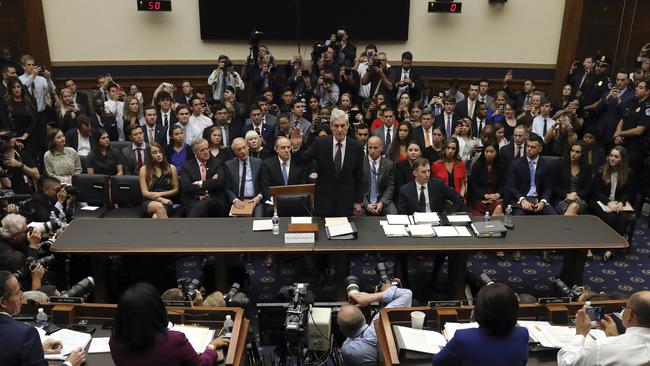
Mr Nadler kicked off the proceedings in a filled-to-capacity hearing room on Wednesday evening (AEST) saying that his panel had a “responsibility” to address the evidence Mr Mueller uncovered and would make a recommendation to the full House when its related investigation concluded. “We will do this work because there must be accountability for the conduct described in your report, especially as it relates to the president,” Mr Nadler said.
Before the morning hearing started, Mr Trump, who earlier this week said he wouldn’t watch it and later said he would tune in for a few minutes, railed against Mr Mueller on Twitter, again calling the investigation a “Rigged Witch Hunt!” The president has repeatedly said Mr Mueller’s report clears him of crimes, a claim contradicted by Mr Mueller on Wednesday.
“So Democrats and others can illegally fabricate a crime, try pinning it on a very innocent President, and when he fights back against this illegal and treasonous attack on our Country, they call it Obstruction? Wrong!”
Later Wednesday night (AEST) Mr Trump tweeted a quote from Fox News host Chris Wallace criticising Mr Mueller’s performance and as of 10am hadn’t left the White House residence, according to a White House official.
Mr Mueller vociferously defended the makeup of his team, which included several prosecutors who had donated to Democrats and two FBI employees who had exchanged hundreds of text messages critical of Mr Trump. Republicans have long alleged the investigation was biased against Mr Trump from the outset.
“I’ve been in this business for almost 25 years, and in those 25 years, I have not had occasion once to ask somebody about their political affiliation. It is not done,” Mr Mueller said in response to Rep. Kelly Armstrong toward the end of the first hearing. “What I care about is the capability of the individual to do the job and do the job quickly and seriously and with integrity.”
A number of Republicans pressed Mr Mueller on various decisions related to his investigation, often to limited responses.
In response to Rep. Jim Sensenbrenner, Mr Mueller said it wasn’t his job to refer findings to the House of Representatives for possible impeachment. “We have studiously kept in the centre of our investigation our mandate, and our mandate does not go to other ways of addressing conduct. Our mandate goes to developing the report,” Mr Mueller said.
Mr Mueller told another Republican politician, Rep. Martha Roby of Alabama, that his team hadn’t begun to draft its report before Mr Barr promised at his confirmation hearing in January to release much of the report to the public.
Democrats tried — unsuccessfully — to get Mr Mueller to explain his report in his own words.
Rep. Theodore Deutch, for example, pressed Mr Mueller on an episode from his report in which Mr Trump asked former White House counsel, Don McGahn, to have Mr Mueller removed.
“Director Mueller, did McGahn understand what the president was ordering him to do?” Mr Deutch asked. Mr Mueller responded: “I direct you to what we wrote in the report in terms of characterising his feelings.” As Mr Deutch continued to press him, Mr Mueller again said: “I direct you again to the report.”
Democrats also focused on Mr Mueller’s lengthy career in public service as a Republican, from his years as a prosecutor and senior Justice Department official, to serving as FBI director in the aftermath of the September 11, 2001, terrorist attacks. “The Senate confirmed you with a vote of 98-0. Correct?” Rep. Greg Stanton asked Mr Mueller of his nomination to lead the FBI. After witnessing hours of battles between Republicans and Democrats on the committee, Mr Mueller responded: “Surprising.”
The Wall St Journal

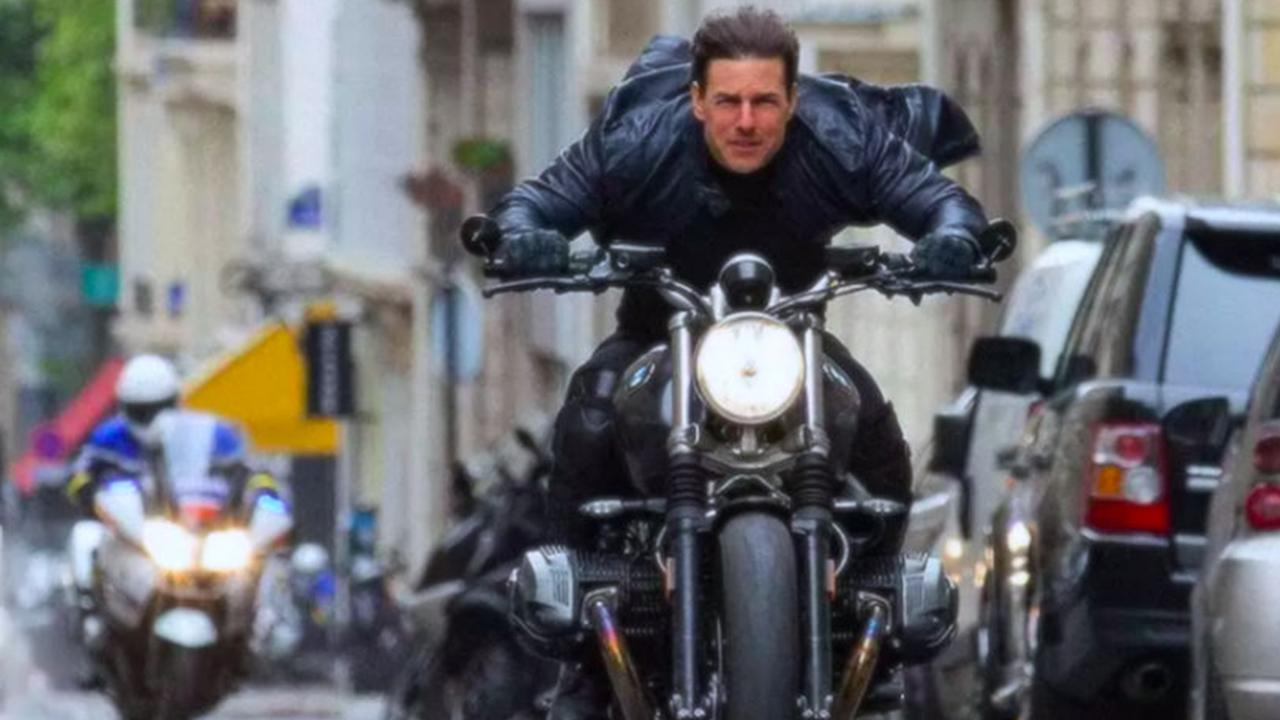
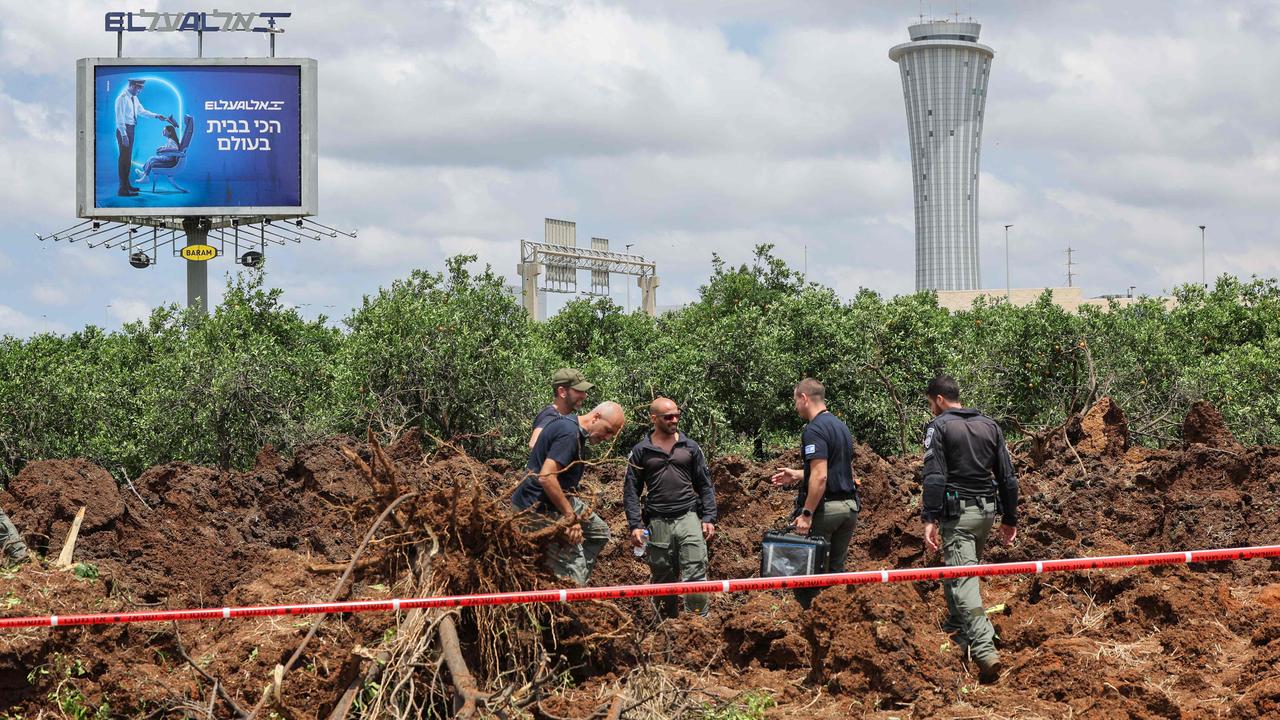
To join the conversation, please log in. Don't have an account? Register
Join the conversation, you are commenting as Logout